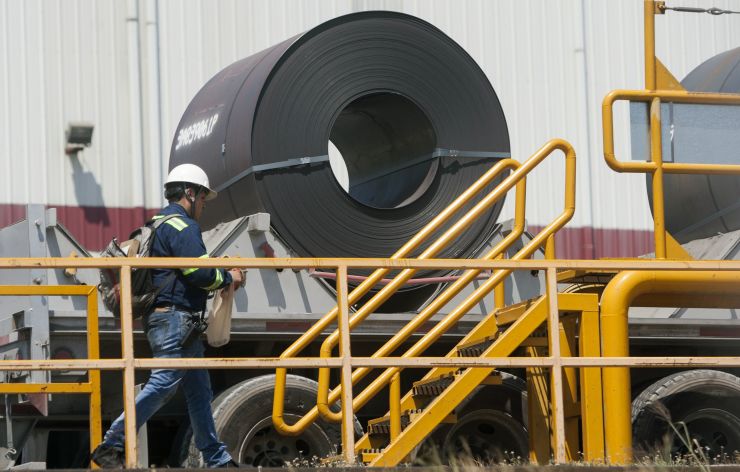
The United States has reached a deal to lift steel and aluminum tariffs on Canada and Mexico, removing one key obstacle to passing updates to the North American Free Trade Agreement.
In a joint statement Friday, the Canadian and American governments said the U.S. will scrap the metals duties within two days. Canada will remove tariffs levied on American goods in retaliation for the steel and aluminum duties. The countries will also:
Drop all pending litigation in the World Trade Organization related to the tariffs
Set up measures to “prevent the importation of aluminum or steel that is unfairly subsidized and/or sold at dumped prices” and “prevent the transshipment of aluminum and steel made outside of Canada or the United States to the other country”
Make an “agreed-upon process for monitoring aluminum and steel trade between them”
In a separate statement, the Mexican government also said it would remove retaliatory tariffs it put on the U.S. and cease pending litigation. Mexico also said it would set up measures to stop unfair trade practices in the aluminum and steel markets and to monitor trade of the metals in North America.
Trump referenced the tariff removal during remarks Friday to the National Association of Realtors, saying, “I’m pleased to announce we’ve just reached an agreement with Canada and Mexico to sell product without the imposition of major tariffs.”
The Canadian and Mexican governments, along with top U.S. lawmakers, have pushed the Trump administration to remove the tariffs before the countries approve the United States Mexico Canada Agreement. President Donald Trump and Canadian Prime Minister Justin Trudeau spoke earlier Friday about the duties on metals and the tariffs Canada slapped on U.S. goods in retaliation, according to a spokesman for Trudeau.
“Now that we’ve had a full lift on these tariffs we are going to work with the United States on timing for ratification” of USMCA, Trudeau said after speaking with steelworkers on Friday. He said he is “optimistic” about moving forward with the agreement in the coming weeks.
Trump cited a national security threat when he put respective tariffs of 25 percent and 10 percent on steel and aluminum imports last year. When the White House decided not to exempt Canada and Mexico, the U.S. neighbors and some members of Congress questioned why the allies posed a threat to the U.S.
The deal could boost Trump’s hopes of getting the USMCA, one of his top policy priorities, through Congress. Senate Finance Committee Chairman Chuck Grassley, R-Iowa, among others, pushed him to remove the tariffs before lawmakers ratify the trade agreement.
Lawmakers from both sides of the aisle cheered the de-escalation in tensions with Canada and Mexico. Grassley, an Iowa Republican, said “the biggest hurdle to ratifying USMCA has been lifted.” Sen. Ben Sasse, R-Neb., called the move “great for America, great for our allies and certainly great for Nebraska’s agriculture industry.”
Senate Minority Leader Chuck Schumer, D-N.Y., said “we should be focusing our effort on China, not on Mexico, Canada or Europe.” But he added “there are still many other issues that are outstanding before Democrats would support the USMCA.”
The deal still faces its challenges: Democrats have raised concerns about environmental and labor provisions in USMCA, as well as how it could affect drug prices in the U.S. Mexico passed a labor law last month in part to address those concerns.
On Wednesday, U.S. Trade Representative Robert Lighthizer met with Canadian Foreign Minister Chrystia Freeland. The negotiators were expected to discuss a process for removing the tariffs.
The Trump administration aims to send paperwork to Congress soon, which could set up a vote on USMCA before lawmakers leave for the entire month of August.
The White House’s recent escalation of a trade war with China rattled investors and raised concerns about damage to businesses and consumers. But developments Friday boosted markets.
Before reports of the deal to remove steel and aluminum tariffs, the Trump administration said it would delay tariffs on imports of cars and auto parts from Europe, Japan and other countries.
























